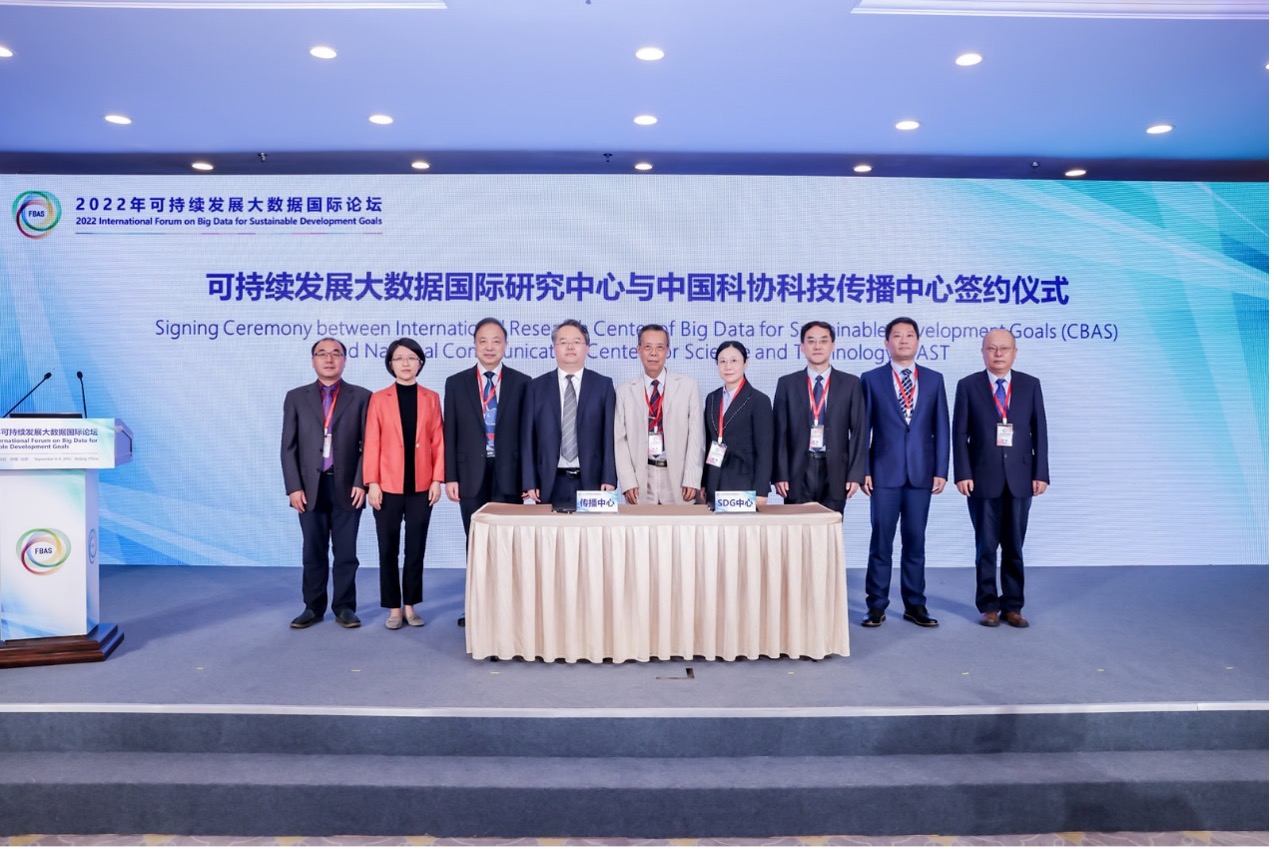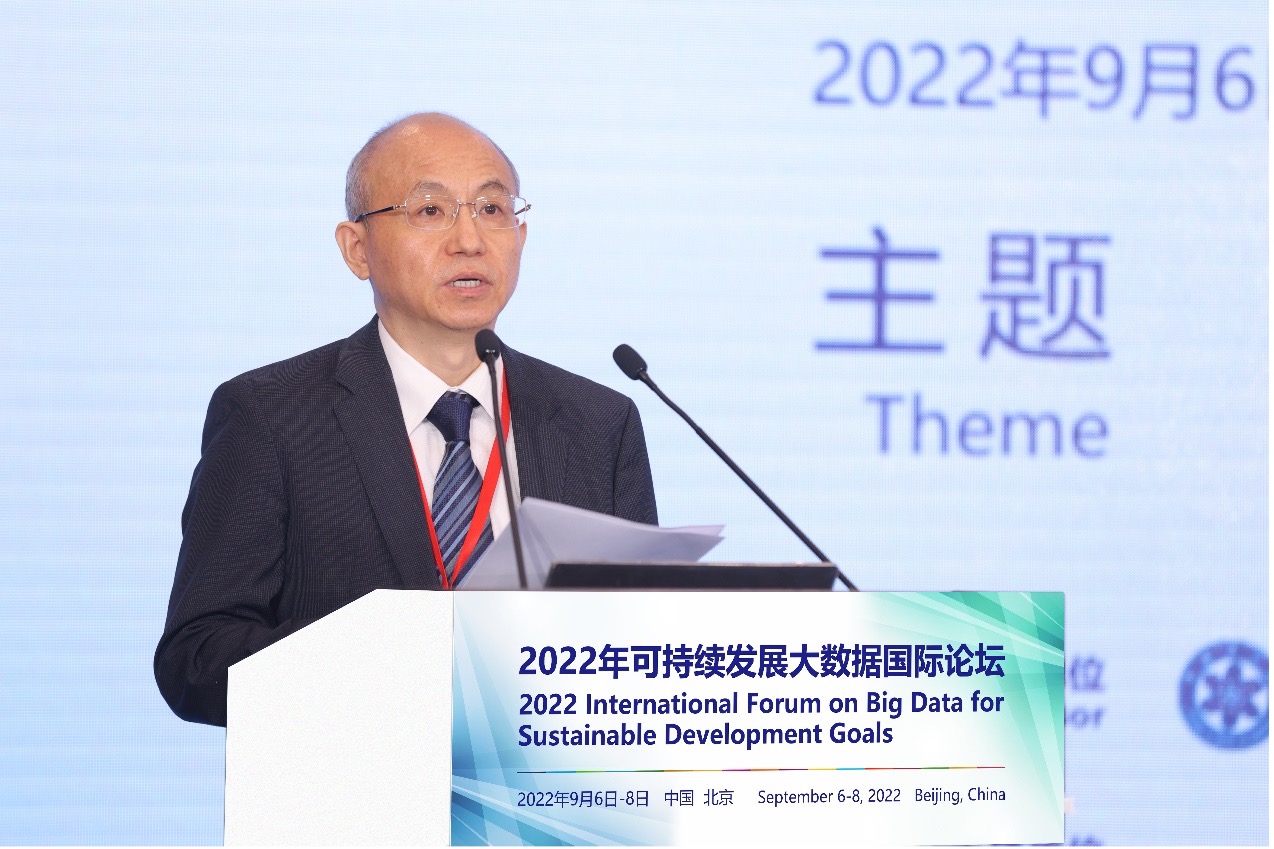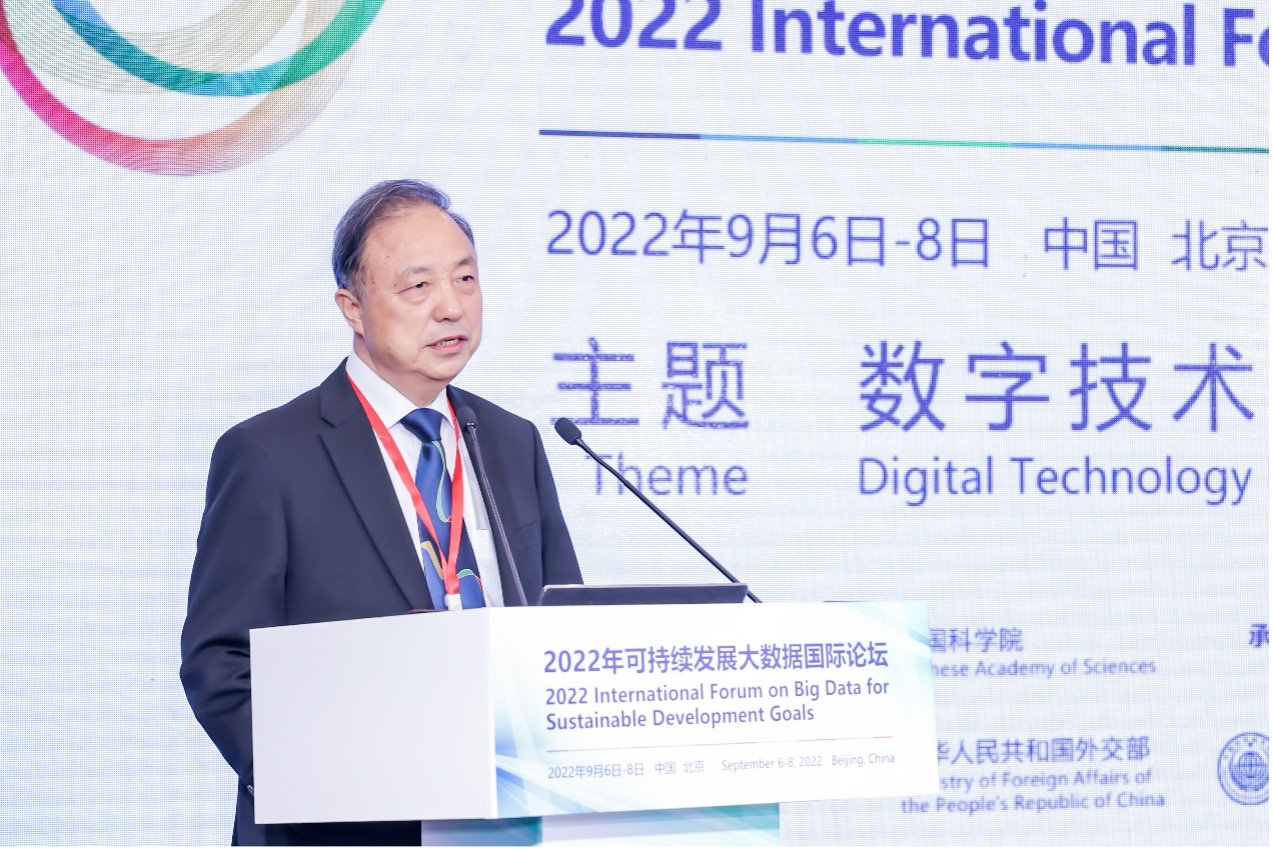

The 2022 International Forum on Big Data for Sustainable Development Goals (FBAS 2022) opened on September 6 in Beijing, China. The three-day event was sponsored by the Chinese Academy of Sciences (CAS) and hosted by the International Research Center of Big Data for Sustainable Development Goals (CBAS) and the Aerospace Information Research Institute (AIR) of CAS.

Signing ceremony between CBAS and the National Communication Center for Science and Technology [IMAGE: AIR]

Zhang Yaping, Vice President of CAS, delivers welcome remarks. [IMAGE: AIR]

Guo Huadong, Director-General of CBAS, delivers a keynote speech. [IMAGE: AIR]
FBAS 2022 aimed to strengthen international exchange and cooperation in sustainable development and big data anticipating innovative uses of big data to support the UN 2030 Agenda as well as the China proposed Global Development Initiative (GDI).
The conference built on the success of FBAS 2021 — the first FBAS forum, which was held in Beijing in September 2021 to mark the founding of CBAS with nearly 1,000 participants from 61 countries and regions.
Digital technology, especially big data, plays a crucial role in analyzing sustainable development issues related to the Earth system and human activities as well as in assisting national governments in decision-making processes, said Professor Zhang Yaping, Vice President of CAS, at the opening ceremony.
CAS attaches great importance to the research of sustainable development and big data, and regards the founding of CBAS as an important starting point, he said.
“CAS will further cooperate with global research institutions and scientists to enable people of all countries to benefit from digital technologies through the new pattern of digital cooperation,” said Zhang.
Professor Guo Huadong, Director-General of CBAS, mentioned in his keynote speech that the implementation of the UN 2030 Agenda and GDI calls for scientific and technological innovation, where digital technologies are one of the most important influences.
He said that the new mission of CBAS is to work with international scientific communities and stakeholders to launch a “Sustainable Development Satellite Constellation Plan” and develop and share “data and information for SDGs monitoring”, which are among the deliverables of the High-level Dialogue on Global Development.
Irina Bokova, former Director-General of UNESCO, remarked via a video link that the establishment of CBAS last year was a “milestone enthusiastically embraced by the UN communities”. She said that there are only eight years left to fulfill the 2030 Agenda and “drastic gaps” are evident in several areas. Only “an ardent, urgent, more ambitious, and well-resourced global plan” will ensure that science can effectively support the SDGs, she said.
FBAS 2022, with the theme “Digital Technology Empowers Global Sustainable Development”, featured a wide range of academic discussions on topics such as zero hunger, clean water and sanitation, affordable and clean energy, sustainable cities and communities, climate action, life below water, life on land, digital technology, and youth innovation.
The event was co-organized by 40 international organizations, research institutes and universities and included eight keynote speeches, 57 parallel sessions, more than 300 oral reports, and 13 theme conferences attended by around 700 participants from 61 countries and regions.
Source: Chinese Academy of Sciences